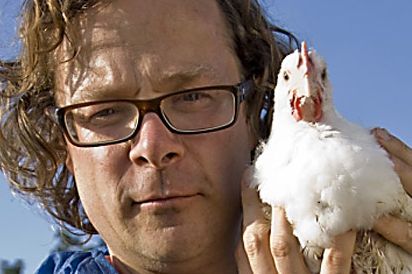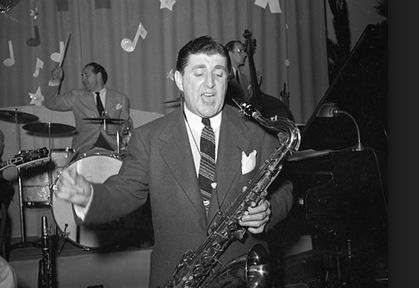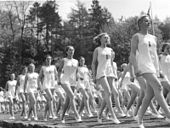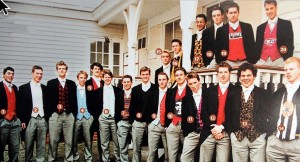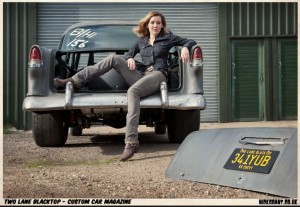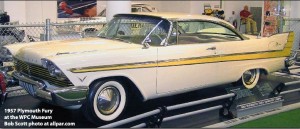I was asked, out of the blue, to do some poetry for Mother’s Day, my first real grown-up paid-for gig. My relationship with my mother is distant, to say the least. There was a lot of confusion about my whole family while I was growing up, many myths and legends and deliberate obfuscation. So I wrote this, about that kind of chaos and ran it by a friend who has a family. We’d been talking earlier that day. Something she said gave me the key to the thing, the eighty percent line.
She said there were tears in her eyes by the time she’d finished reading and not because it was so rubbish. It was quite hard to write it. It’s quite difficult to perform. It needs plenty of pauses and when you’re somewhere loud that’s not always comfortable, leaving the audience to their own devices. In case anyone is confused, some of it is true, like anything. Some of it isn’t. It’s a poem. Not a documentary. But to my friend, sorry. I didn’t mean you to cry.
An Eighty Percent Chance of Pain
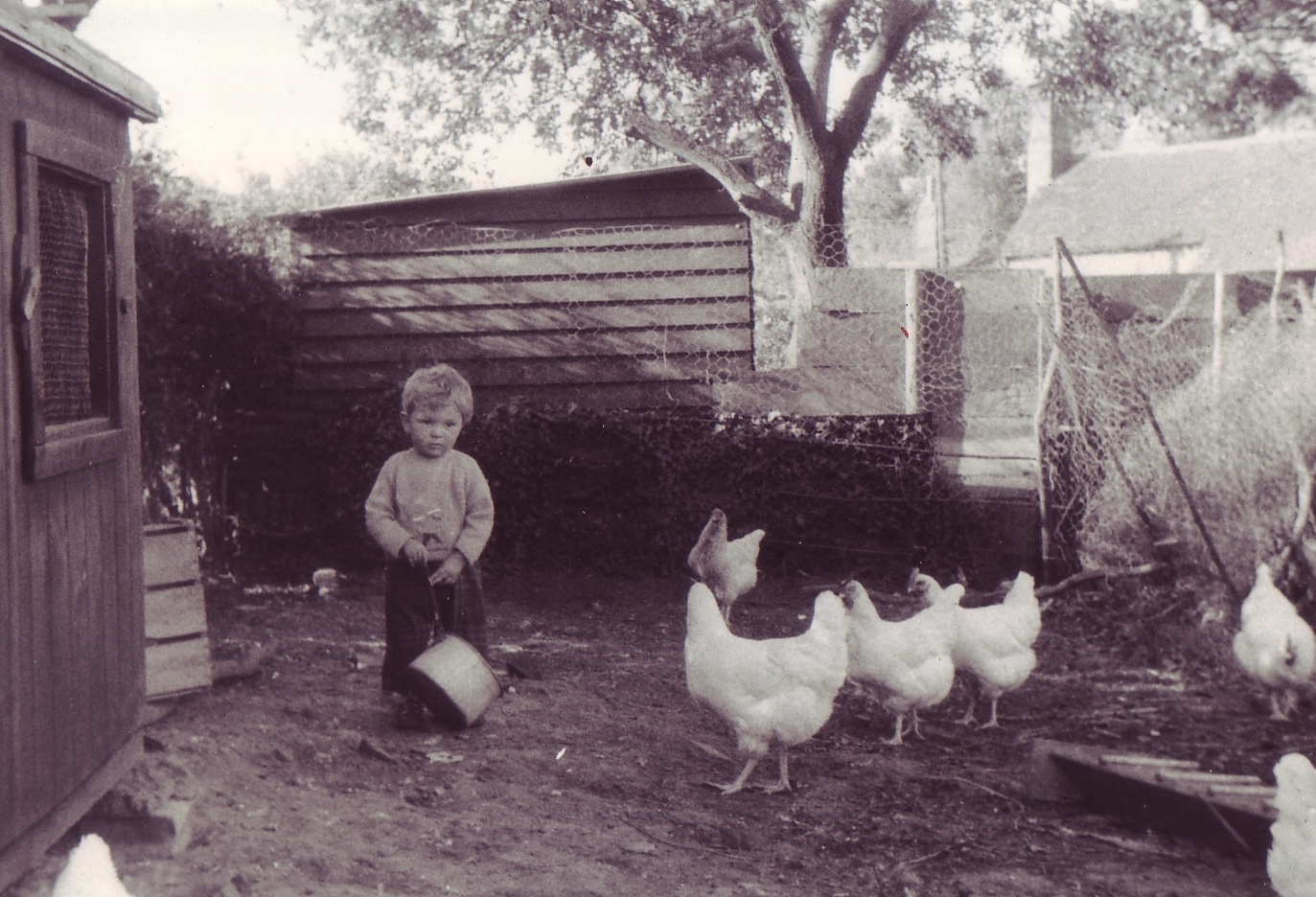 My mother lives in a nursing home.
My mother lives in a nursing home.
My mother was afraid of guns
Or what they did.
She was born in a time of black and white
Photos and Spitfires and the Blitz on Bristol
And burning warehouses
And the sky red as she left for school
In the morning,
The scholarship girl at a steam-haunted country station.
The red was fire. The red was the death of a city.
Not a shepherd’s promise
But it never was.
Red sky at night was shepherd’s delight
Red sky in the morning was shepherd’s warning
Although who he was warning is moot.
Maybe me. She went to London.
She trained as a nurse.
She had sharp elbows and a sharp tongue
And hard fists. As I learned.
Actually that’s not even vaguely true.
She never used her fist.
She used the ball of her hand.
She would take me by the wrist.
She used her left hand for this
Dragging me off balance
And hit me in the side of my head
With the ball of her right hand.
It didn’t leave a bruise.
She worked in an Old People’s Home then.
Other people have other mothers.
That one was mine. It was because
I looked like my father, I think.
I found a photograph when I was in my twenties.
It was summer, after university.
I went to my mother’s house with a girlfriend.
One hot afternoon while we were wondering
If there was enough time to go upstairs
We looked through a box of old photographs,
Concluded that there wasn’t and found me,
Standing next to a waterfall I’d never been to
In front of a green lagoon I’d never seen
With a woman with a floral, elaborate,
Large swimming costume
Large as in the amount of skin it covered.
It was not large.
She was not large.
I had no recollection
Of ever having had this photograph taken
For a good reason. It was not me.
It was my father, the father my mother hated.
We never knew how much was true.
She said that he had been born in Australia.
He wasn’t. I found that out in two hours
In Somerset House as it used to be
At end of the Strand 30 years ago.
Something else we can’t mention.
She claimed he was a bigamist,
That she had tried to divorce him
But you can’t divorce people
You’re not married to;
In fifteen minutes on a mobile phone
On the internet last week, a man in a pub
Discovered that if my father was a bigamist then
He was using a different name.
Only one marriage was recorded to that man.
Other people have other mothers;
That one was mine.
We had to move abruptly
When my father was briefly imprisoned
Not for bankruptcy as I thought as a child
But for contempt of court, not meeting
The payments on the money he owed
Which even as a bankrupt you have to do
If you earn anything. And he did.
He always earned something.
Quite a lot, it seemed.
He was running two families
For eleven years. Two houses. Two mortgages.
His cars seemed quite modest. Ford Anglias
On the firm as people said in those days.
I last saw him driving a gold-painted Mk II Jaguar
The back seat filled with carpet of questionable provenance.
He’d run off with a hairdresser in Andover.
Maybe.
Four years later he died
Still causing trouble to the living.
He had a heart attack at the wheel of his car.
A different car. An Audi on the firm again.
And even after he was dead he drove his car
Into three other parked cars.
At some speed, apparently.
According to the coroner.
Other people have other families;
That was mine.
I talked for three quarters of an hour today
To a friend a quarter of a world away.
She’s a mother but not of any child of mine.
I asked ‘what’s it like? You’ve got a son.
What’s it like when he won’t talk to you?’
How do you do it? How do you get on?
How do you care? How do you love this person,
Who says they hate you? How do you care
And love and try to keep on and do it again?
And again? And then again?
She answered very simply: you just do.
But there’s an eighty percent chance of pain.
I thought I’d misheard her. The line
Kept cutting in and out on Skype
Those five or seven or ten thousand miles.
Much of the time it sounded as if she
Was using a bucket for purposes
We couldn’t discuss.
She assured me she wasn’t.
I wasn’t either but there we were.
I didn’t hear you I said
Can you say that again?
Yes, you heard what I said, she said.
There’s an eighty percent chance of pain.
Other people have other friends;
That one is mine.
This isn’t a Hallmark card.
I don’t know the gold standard
Of motherhood. I have no secrets
To impart to you on this
Or pretty much anything else.
My mother’s performance;
If I were a schoolmaster
I would mark it four out of ten.
Must try harder. Attention wanders.
But I would not write ‘see me.’
Not now. Not then.
Other people have other mothers;
This one was mine.
Sometimes I still remember a time
When my head didn’t come up
To the level of a fencepost.
We walked past Star’s field.
Star was a horse with a white blaze
On his forehead
In a village we’d just moved to.
Another move. Another village far from here.
You can’t go there now.
We walked along a path, over a stile made of stone,
One big stone set on edge in the earth
At the end of the path a wooden gate nearest our house
Our new house on the estate that would eat
All of these fields by the time we left again.
Other people have other villages;
This one was mine.
Memories play tricks.
Memories tell lies.
There can’t have been dandelions
And cold at the same time.
Or can there?
Maybe there can.
Some people have other memories;
These are mine.
I remember my mother’s hand
Holding mine.
I remember her sheepskin coat
And the smell of perfume,
An afternoon sunset, Star’s field and dandelions
And for once feeling safe.
Some people have other memories of their mothers
These are mine.
The wind’s blowing up as I walk these fields
Remembering. Clouds are coming
Up over the hill. Thinking back,
Maybe that’s how families are
For everyone. I think it’s pretty much the same
There’s always an eighty percent chance of pain.


